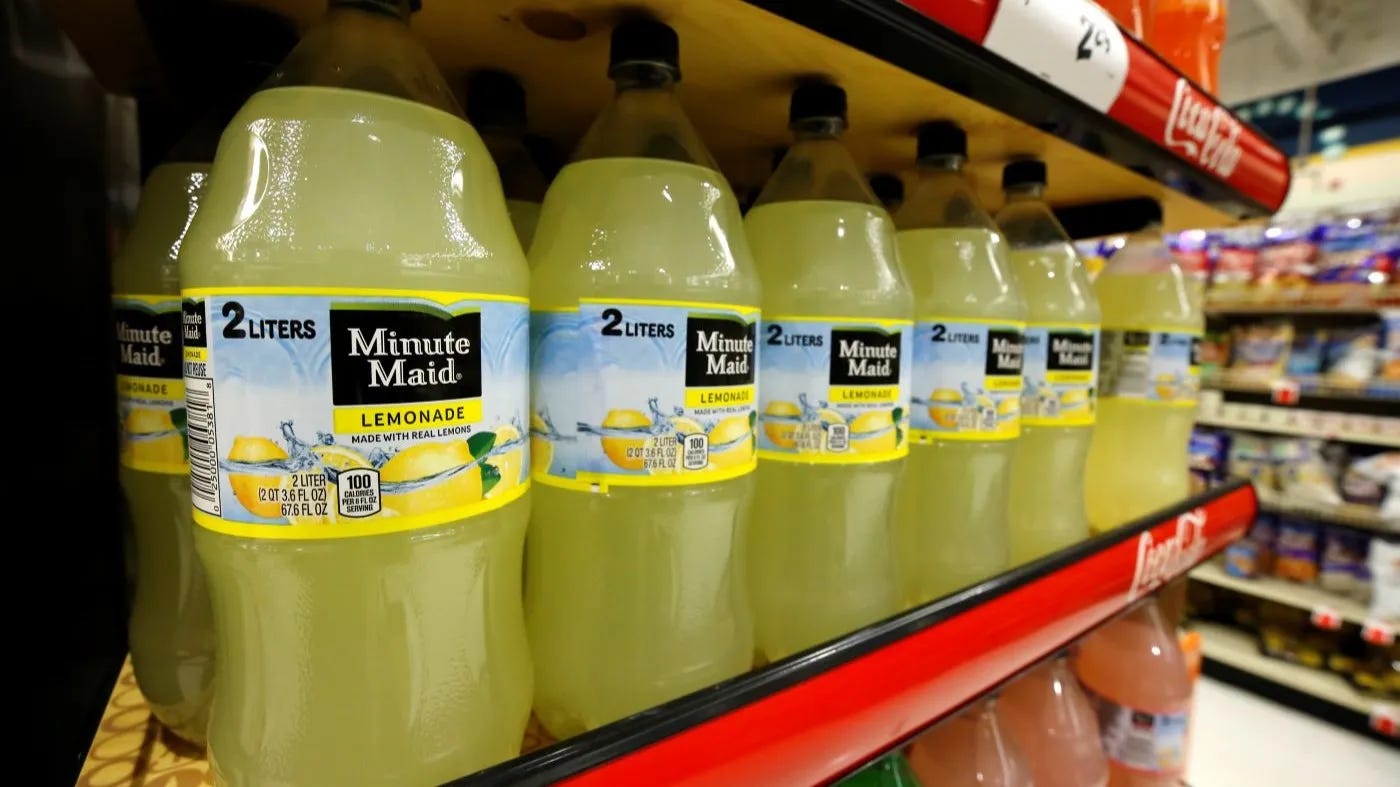Coca-Cola is making headlines again, but this time it’s not about a new flavor or a snazzy ad campaign. Instead, the beverage giant has issued a voluntary recall of over 13,000 cases of Minute Maid Zero Sugar Lemonade due to a rather significant mix-up. It turns out, those "zero sugar" cartons might actually be hiding a sugary surprise—cans of regular Minute Maid Lemonade with a hefty 40 grams of sugar per can. For anyone watching their sugar intake, like folks with diabetes, this mistake is a serious concern .
What You Need to Know About the Recall
How Many Cases? Approximately 13,152 cases are affected by this recall.
Where Were They Sold? The products found their way to stores in Indiana, Kentucky, and Ohio.
How to Identify the Recalled Products: Look out for the following codes on the cartons:
Carton codes: FEB1725CNA or FEB1725CNB
UPC code: 0 25000 12115 9
So, if you’ve recently stocked up on Minute Maid Zero Sugar Lemonade from any of these states, it’s time to check those cartons.
Sugar Showdown: Zero Sugar vs. Regular Lemonade
For anyone thinking, "What's the big deal?" here's the difference. The Minute Maid Zero Sugar Lemonade lives up to its name with 0 grams of sugar and a mere 5 calories per serving. But the regular version? Well, it packs a punch with 40 grams of sugar and 200 calories per can . Imagine someone reaching for a "diet-friendly" option only to end up with the sugar rush they were actively avoiding. That’s not just a mistake—it’s a potential health hazard.
FDA Classification: What Does Class II Recall Mean?
The Food and Drug Administration (FDA) has categorized this situation as a Class II recall. Essentially, that means there’s a remote chance of serious health issues, but it’s still something worth addressing. While there haven’t been any reported illnesses tied to this mislabeling incident (thankfully!), it’s the kind of thing that could have significant consequences for those managing conditions like diabetes .
What Should Consumers Do?
Coca-Cola has already removed the affected products from store shelves, aiming to keep these sugary surprises from reaching more unsuspecting customers. If you happen to have any of the recalled lemonade in your pantry, the company suggests either discarding it or bringing it back to the store for a refund . Better safe than sorry, right?
A Sour Lemonade Lesson for Coca-Cola
This labeling mishap serves as a reminder of how crucial accurate product information is, especially when it comes to food and beverages. For consumers who rely on "zero sugar" labels for health reasons, it's more than a minor mix-up—it's a potential risk. And for Coca-Cola, it’s a reminder that even the big players can slip up in ways that affect everyday customers.
If you’re a consumer in Indiana, Kentucky, or Ohio, check your pantry before you crack open that next can of lemonade. It might be worth making sure that the "zero sugar" promise actually means what it says.













